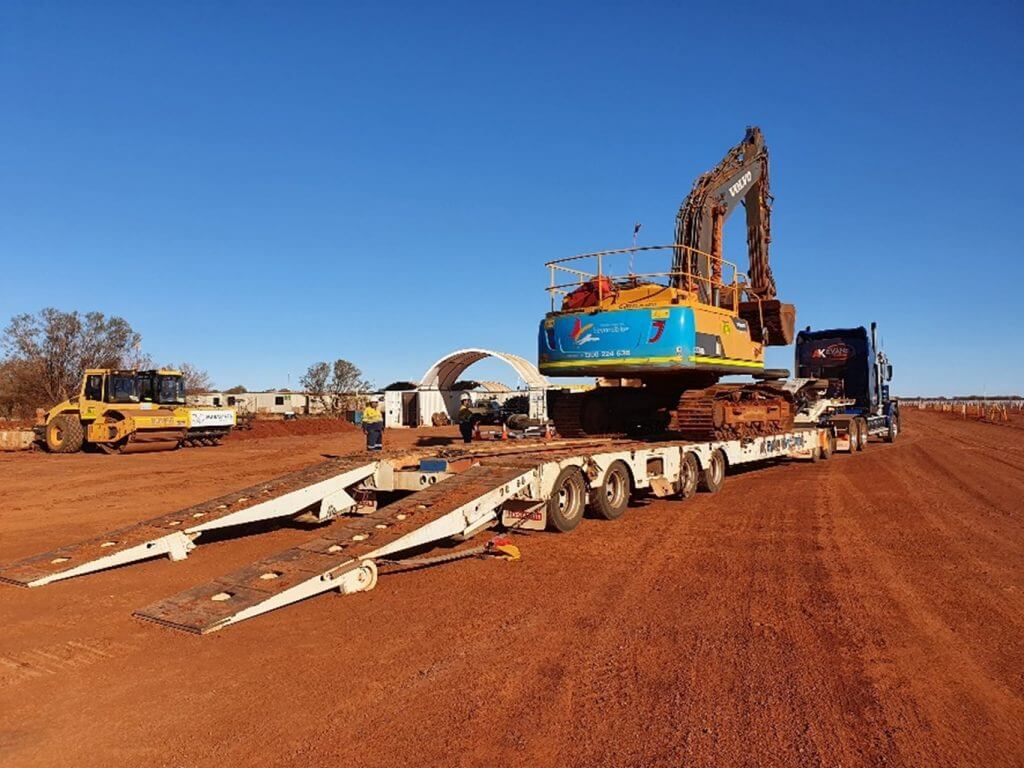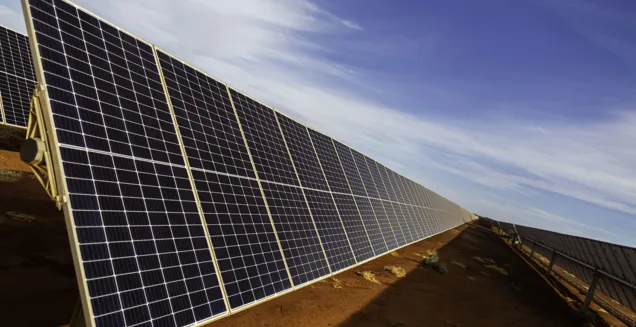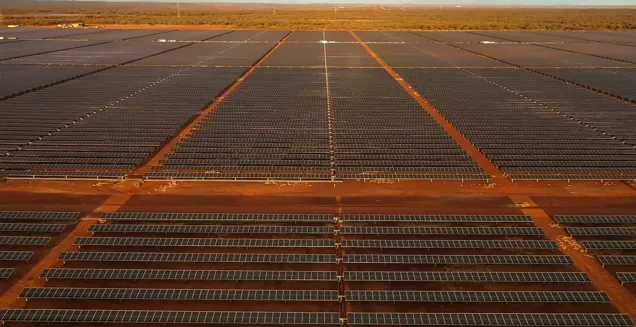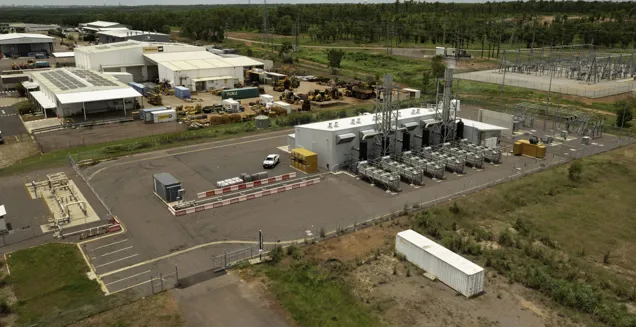Chichester Solar Gas Project - Indigenous Outcomes Progress Report May 2021
Project: Solar farm, electricity substation and transmission lines Location: Pilbara, WA
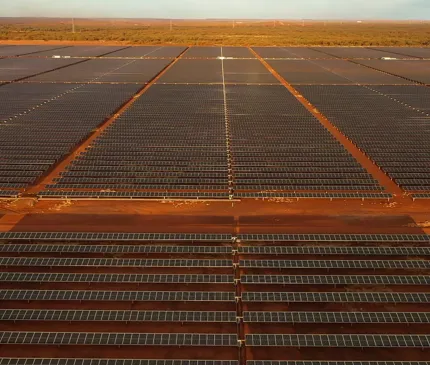
NAIF proponent Alinta Energy had a chat with Michael Still, General Manager and Garry Jaffrey’s, Director, of Maramara regarding progress at the Chichester Solar Gas Hybrid Project, which NAIF is supporting with a $90m loan.
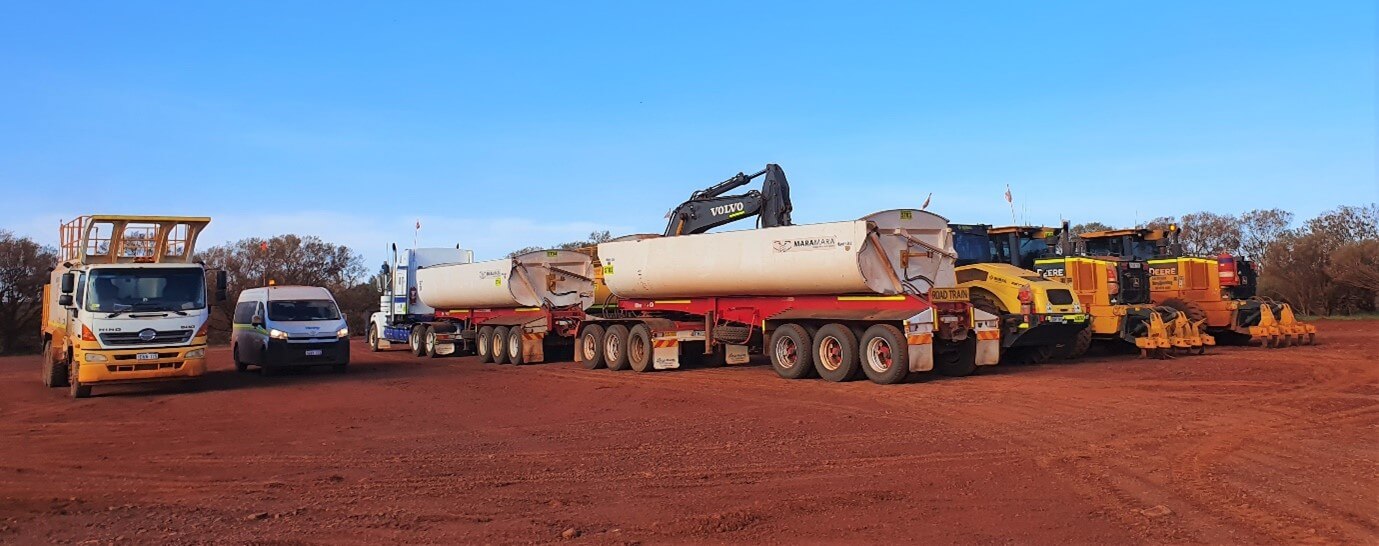
Tell us about Maramara
“Maramara is in its seventh year. It’s a Pilbara-based JV that is majority Indigenous-owned; bringing together two Pilbara-based businesses to provide Mining and Civil Construction services.
We want to create mutual benefit for those who work for us and the communities where they come from. The name Maramara, captures the spirit and intent of our business, and means “Two Hands”. The logo depicts the two principle parties coming together to grow and enhance Aboriginal involvement and participation in the Western Australia economy.
In addition to being an Indigenous subcontractor of choice, Maramara has federal accreditation through the Supply Nation program. We’re also ISO certified in Certified in ISO 9001:2015 Quality Management and AS/NZS 4801:2001 Occupational Health and safety ISO 14001:2015 Environment.
Our clients include major miners, and construction and energy companies like FMG, Downer and Alinta Energy.
Our purpose is about giving back to community. This includes the Pilbara community on which the Chichester Project is based.”
Tell us about Maramara’s work on the Chichester Solar Gas Hybrid Project
“It’s been a bit of a special project for us as the Palyku People, who are part of the Pilbara mob. We’ve been able to work on the land we’re from, including where FMG’s Cloudbreak mine is. That doesn’t happen very often, as our people usually need to travel significant distances for work.
This project allowed drive-in drive-out. The norm on mine sites and Pilbara construction projects is for fly-in, fly-out and then everyone is transported onto site together.
Alinta Energy, Downer and FMG were supportive in managing this tailored solution for us, and sorting out different journey management plans and alternative access to site. This flexibility meant a lot to us and we appreciated the work that went on with a lot of stakeholders to make this happen, especially during the COVID-19 outbreak”.
Tell us about your approach on this job
“We focus a lot on mentoring, and we can only do this by having the right leadership team on site. On the Chichester job we had Josh Haynes as Project Manager, who led with Stan Leeder as supervisor in managing the team and operations. We’ve got some great guys that have been with us a long time, including Rodney Dan [Bullet] from Port Hedland, who has been with us over 4 years.
This group led the team on the clearing scope of works – which was a huge job – clearing 1 million square metres in three weeks, with three cyclones, or large weather events, coming through during that period. That was during January 2020, and we were lucky to have the team of local guys during the cyclones as they understand the weather patterns better than most!
We also worked on building roads and building benches for substations.
The benefits of wind and solar projects for our workforce, especially the Indigenous workforce, is that it allows the team to commit for one to two years (or however long it may be) and then take some time to go back to their community. A lot of our workforce have cultural commitments, playing an important role in their communities – so they’re balancing these priorities.”
Tell us about the importance of mental health support for workers and communities
“We have a country-wide workforce and often our teams are travelling away from home for extended periods – involving isolation.
Mental health is an important topic for us – both to support our own teams, but also give back to the community. We have 10 Beyond Blue painted excavators that we use on jobs. For every hour they operate, we donate $1 to Beyond Blue. This is about raising awareness for mental health issues and also giving back.”
How has COVID impacted Maramara?
“In March 2020 when the Prime Minister was talking about COVID and the first shutdown and taking precautions, he talked about the need to protect the most vulnerable people in our community.
A lot of people in Indigenous communities were considered ‘at risk’ groups (like the elderly and people with chronic health conditions) for COVID. So it was tough for our guys, they were conscious about limiting the number of people that went back to communities after they’d been travelling. They’re focused on doing the best thing for their community.
That was tough for them as they weren’t always able to see their families. We had to make sure we kept people connected with video links and making sure we had a lot of touch points to check in on them.”
